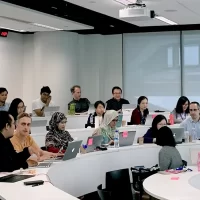Organise your study materials
You need to know what to study before you start studying.
It is important to organise all your study materials and make a list of topics you need to cover for your exams to ensure you don’t miss any.
Then, prepare a timetable that allows you to cover all the topics at a good pace.
Starting revision early will allow you to go through the content comfortably, so try not to leave all your revision to the last minute.
Also, ensure that your timetable is not insane. Avoid scheduling a lot of topics on any given day as this may lead to a build-up of unfinished topics and falling behind. This increases anxiety, guilt and stress.
Scheduling your breaks and nights off is essential to avoid missing out on your much-needed revival time.
Lastly, it is very satisfying to have a checklist — give yourself a tick at the end of studying each topic.
Take study breaks
Make sure you have adequate, scheduled breaks while studying. Your brain is not designed to work effectively for hours on end.
As a rule of thumb, taking a 15 minute break after every 45 minutes of study will enhance your ability to work consistently.
The exact timings can vary, so find a routine that works for you.
During these breaks, avoid social media —get some fresh air or talk to people instead. Reward yourself during these breaks once you achieve your study goals.









